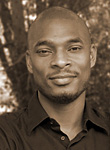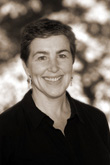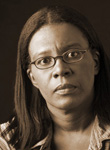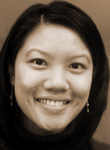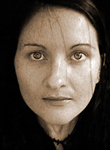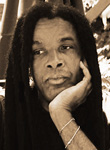Maybe you’re trimming ivy on a fence and encounter a family of Carolina wrens, provoking them to fly out like exploding puffballs to sit on the branch of a nearby smoke tree and scold you loudly. Ten years ago that might have prompted you to take a seat on the porch to watch and listen to their chatter. But now it’s: let me get the phone. I could film this and upload it to YouTube under “cute bird videos” and share it on Facebook.
This impulse for taking the intimate moment and using art in one of its many forms to negotiate the solitude of consciousness must date at least to the beginnings of speech and image. The currently ubiquitous nature of status updates and the proliferation of video clips reveal that the impulse is not only unchanged but is now deployed on a vast and democratic scale. A recent entry in the history of this desire to transform and structure individual experience as a way to elicit communal understanding is the video essay, featured as a suite in this issue of Blackbird with the help of guest curator John Bresland.
We have published Bresland’s work before, and he is represented here with a new piece, Mangoes, as well as with an introduction to and an explanation of the form. Familiar aspects of the essay apply—a stab at a question, the push toward difficult realization, an intimate voice—but are joined by equal weight being attached to image, language and sound in a hybrid form where no single element manages the heavy lifting alone. The video essay has ancestors both in documentary film and in literature, yet also employs the personal nature of current video and its ease of access on the web to find its audience and make its mark.
In video essays published here, we discover poet Claudia Rankine, in collaboration with filmmaker John Lucas, using the instant replay to aim for a visual truth in Zidane in a manner never seen on ESPN. In The Wren, a work of and about poetry, Penny Lane and Jessica Bardsley do away with the documentary tendency to illustrate language with image, or vice versa, by using language as image. (So a wren indeed does make the cut.) Work by Carl Diehl traces inexplicable and curious strands of dubious data, Marilyn Freeman pointedly interrogates the nature of identity, and John Scott toils to unravel the mental knot surrounding a political hot topic, rounding out the suite.
Our annual Introductions reading loop calls attention to work by artists of notable promise at the beginnings of their careers. An addition here is the inclusion of a writer selected as testament to the late George Garrett and his well-known habits of generosity, particularly to young writers. Garrett’s friend and former student R.H.W. Dillard presents his own student, Lianna Quill, along with sixteen of her poems, which he launches with an essay guiding us in reading them. Also introduced are the intense, precisely rendered meditations in the poems of Melody S. Gee; the hallucinatory, dreamlike work of Joanna Pearson; and the disturbing yet strengthening revelations in the poetry of Sara Quinn Rivara.
Fiction writers Jocelyn Cullity, Zachary Mason, and Airin Miller, and visual artist Ben Jurgenson appear here as well, and the stories trade in the art of paring down. The chaos of the 1857 Sepoy Mutiny in Cullity’s story strips away all but a woman’s need to survive. A mythic journey rendered in language eroded and carved like a ditch bank marks Mason’s offering, and Miller sets up a detail in a snapshot of an oddly familiar, poignant moment that yet allows one to absorb the information found beyond the frame. Jurgensen’s “Missteps” suggests a kind of deliberately accidental process, hinting that evolution itself may come to be understood as a series of illuminated moments of discovery.
This issue establishes our comprehensive review of the proceedings of the VCU Cabell First Novelist Award celebration and a sampling from the award-winning novel, which in this eighth year of the annual competition is Vacation by Deb Olin Unferth. In addition to a conversation with the author and a reading by her, the reading loop also includes a review of the book and an excerpt from a graphic novel by Unferth and her collaborator Scott Bateman.
As a part of Virginia’s statewide celebration, Minds Wide Open: Virginia Celebrates Women in the Arts, our Gallery includes work by choreographer Jessica Lang and a play by writer and actor Irene Ziegler. Lang discusses Lines Squared, her commissioned dance for the Richmond Ballet, and provides three performance video excerpts. Irene Ziegler’s script of Full Plate Collection, which premiered in Richmond March 11, 2010, appears with commentary and performance photos. In publishing these pieces, Blackbird joins the cultural community of Virginia in this gathering of performances, exhibitions, literary readings, and films by women artists.
Beyond these special presentations, Blackbird offers a regular slate of poems, stories, essays, and reviews. Of particular note in Poetry is Claudia Emerson’s “Secure the Shadow,” which, in its interrogation of images of the dead as preserved in daguerreotypes, raises larger questions of the evanescence of visible traces and what, in this digital age, might preserve the shadows of our own passage.
T.R. Hummer’s poems provide bait for trapping a god and the testimony of the horse who witnessed Nietzsche going mad. Kathleen Graber sends a letter-poem to Gerald Stern and releases herself, as did her mother, from being trapped in the past by celebrating it, and the suite of poems from Margaret Gibson seeks equilibrium in the march of survival as the ten thousand things fall away like lost words. The poems of Kelli Anne Noftle give us penis fencing and parse the difference between love and savagery in the mating chain.
Fiction provides a novel excerpt from Agymah Kamau, a multi-layered narrative spoken by an abandoned son in search of his displaced father. Stories by Al Sim and Curt Eriksen follow a path laid out by the dead to limit the living, and Matthew Healy’s “Always the Obvious Places” leavens the section with the accumulating trials of a hapless parolee and his family.
In Nonfiction Hal Crowther serves as crotchety ambassador to a motley assortment of “nihilists, atheists, existentialists, dipsomaniacs, and depressives” whom he collects under the creative moniker of “straight-chuters,” a term connected to the slaughtering of livestock. Crowther’s freewheeling field report from the swampier regions of human neurodiversity contains electrifying sightings of such figures as Sam Shepard, J.D. Salinger, Samuel Beckett, and David Foster Wallace.
In “Deaf Spots,” Sarah Vap crafts a lyric meditation on the predicaments the profoundly hearing-impaired poet has faced in her own writing life and in her roles as a friend and as a wife and mother, subject as she is to reaching a place or a moment where she “fall[s] off the spectrum of sound, off the spectrum of understanding,” into that zone, that “wide and liquid personal space” where “the collective unconscious [can] peek through.”
Reviews of new books by Jorn Ake, Kara Candito, Kate Greenstreet, Zachary Mason, Brian Teare, Deb Olin Unferth, Lesley Wheeler, and Kevin Wilson and chapbooks by Catherine MacDonald, Ann Fisher-Wirth, Anna Ross, dg nanouk okpik, Cathy Tagnak Rexford, Brandy Nalani McDougall, and Mahealani Perez-Wendt introduce us to an entire cast of lovers and heathens and pagans who resemble, in all their strange familiarity, the people we go home to (or surf out to) every day.
This feast of poems, stories, essays, plays, conversations, and art work joins our debut suite of video essays (situated as they are at the nexus where perception and reality are molded by the complex messaging at the core of all post-wired production) to represent an amazing and categorical expansion of the types of content we hope to continue exploring as we approach our tenth anniversary. ![]()
Return to top menus | Browse issue

